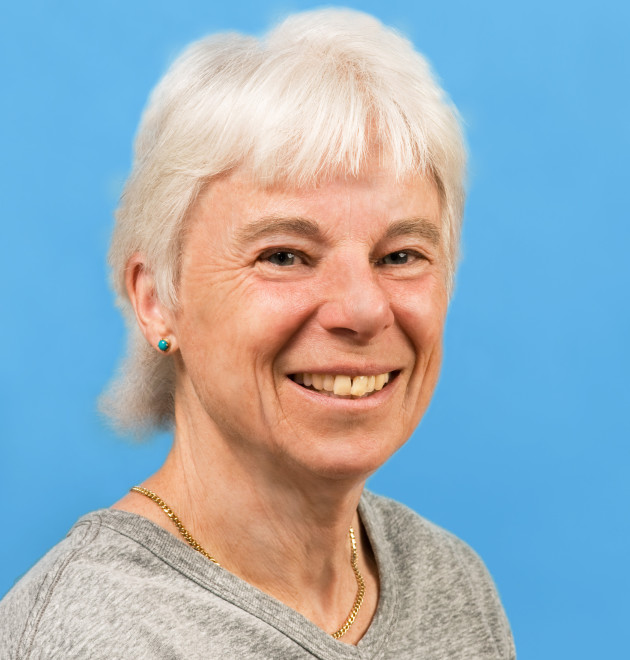RESEARCH: EFFICACY OF DIETARY FIBRE DURING PELVIC RADIOTHERAPY
 How did you get into research?
How did you get into research?
To be honest, I cannot actually remember a time when I was not involved in research. To me, research is not a profession but a way of working. It’s about wanting to know more, harnessing the data, synthesising the information and disseminating the findings. My pre-NHS career was in information management consultancy but when I was invited to join the Royal Marsden in 2005 as a (very newly qualified) Research Dietitian, I couldn’t believe my luck. I had a job which combined dietetics, gastroenterology and radiotherapy research. I had wonderful teachers and now, 15 years later I have a PhD and I’m managing Clinical Trials. What could be better?
What do you enjoy about research?
I love writing and cannot deny the buzz I get when an article is cited or I am contacted for information about the research I have done. There is something incredibly challenging and satisfying about embarking on a journey where you think you know all the answers and inevitably end-up with more questions. Despite the sheer grind of undertaking systematic reviews, personally, I regard them one of the most rewarding of all research methodologies. The ability to transform an almost limitless amount of information into readily accessible and useable knowledge must surely remain a critical part of a researcher’s tool kit for many years to come.
What was the most difficult aspect of doing your PhD?
Sticking to the script! I started to do my PhD full-time and recognised quite quickly that a part-time approach would be more flexible. As a salaried Research Dietitian, I had responsibilities to the Unit(s) within the Trust in which I was working and naturally I found it hard to ignore opportunities to get involved in related but peripheral projects rather than sticking rigidly to the remit of my PhD. I was interested in everything and whilst this was a huge learning opportunity it was also somewhat of a distraction. Harmonising the demands of clinical versus academic responsibilities should not be under-estimated and requires both diplomacy and patience.
What difference has your research training and experience made to your career?
It has empowered me with a way of looking at things that is both critical and constructive. I was delighted to be offered the opportunity of joining the Clinical Trials Unit after my PhD and whilst my formalised training in trial management was limited, my practical research background allowed me to flourish in this highly demanding environment. I am now a Lead Project Manager with my own trial portfolio and have recently been asked to assist with the implementation on a new software platform for capturing Patient Reported Outcomes (PRO) responses for research purposes and in the future out-reach care.
How has research changed your clinical practice?
Since completing my PhD I have moved into a more administrative role but happily I still receive queries regarding the efficacy of dietary fibre during therapeutic pelvic radiotherapy and am a collaborator with a Swedish group undertaking further work in this area. So, in a sense my own practice has not changed but I am heavily involved in the individual improvement of others which is incredibly rewarding. I am a visiting lecturer at Surrey University on Critical Appraisal & Systematic Review Skills and help run regular workshops for dietitians applying for NIHR individual awards in my role as an NIHR Training Advocate.
What has made a difference to progressing your research career?
Working collaboratively with others has given me increased visibility and broadened the scope of opportunities. Publications have been described as research currency and for me this has certainly been true. There is something highly motivating about getting into print and its one of the most effective ways of getting noticed. Last year I was invited to become a Trustee for our Professional organisation the BDA. This was for me the most tangible reward for a personal career in which I have always striven to adopt the highest standards in research design, delivery and dissemination. Now I have to opportunity to help raise the bar for our profession.
Where do you see your clinical academic career going over the next five years?
I will continue to review grant award applications in my role as a BDA Trustee. I will present at workshops and seminars and I will continue to peer-review manuscripts on relevant topics and research methodologies in general . I am hoping that a European research collaboration in which I am involved will come to fruition. The major new initiative to focus on Patient Reported Outcomes within the Trust is really exciting and will probably occupy an increasingly large part of my time in the next few years not only as a research tool but also for its potential in enhancing care pathways in the future.
Dr Linda Wedlake, Lead Project Manager & Senior Trial Manager, PROFILES Team Lead, Royal Marsden NHS Foundation Trust - Linda.Wedlake@rmh.nhs.uk
To download Linda's case study please click here: Linda Wedlake: Case Study (PDF)
Useful links
Contact us
The CATO Team and Radiographers Incubator work on a Hybrid model, combining days in the office with days working from home – the best way to reach us is by email.
cato@imperial.ac.uk
radresearch@imperial.ac.uk
+44 (0)20 3313 7397

